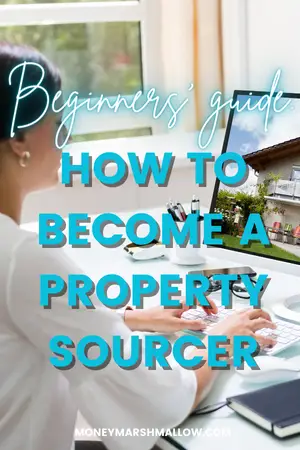If you’re looking for a flexible and profitable career in the property industry, then becoming a property sourcer might be the right choice for you. A property sourcer is a specialist who finds and sources profitable property deals for investors and developers. They’re also known as property finders, deal sourcers, or property hunters. Property sourcing has become a popular career option for those interested in the property industry because it doesn’t require a degree, is relatively low-cost to start, and has the potential for high earnings.
In this article, we’ll cover everything you need to know about becoming a property sourcer, including what the role entails, the skills and qualifications required, how to get started, tips for success, challenges to overcome, and legal requirements.
What does a property sourcer do?
A property sourcer is essentially a middleman between property sellers and buyers. They identify property deals that meet the criteria of investors or developers and negotiate the purchase price on behalf of their clients. The goal is to source properties at a lower price than their market value and sell them to investors or developers at a profit.
A property sourcer has a range of responsibilities, including finding suitable properties for clients, assessing the potential profitability of each deal, negotiating with property sellers and buyers, and ensuring all legal requirements are met.
As a property sourcer, there are several types of deals that you can source for your clients. Here are some examples:
- Buy-to-let properties: These are properties that investors purchase with the intention of renting them out to tenants.
- Refurbishment projects: Some property investors look for properties that require refurbishment or renovation work to increase their value. These are often called BRRR deals.
- Land development opportunities: Property sourcers can also source land development opportunities for investors who want to build new properties or develop existing ones.
- HMO (House in Multiple Occupation) properties: These are properties that are let out to multiple tenants who share communal areas such as kitchens and bathrooms.
- Commercial properties: Property sourcers can also source commercial properties such as office buildings, retail spaces, and warehouses for investors looking to diversify their property portfolio.
- Rent-to-rent deals: This involves renting a property from a landlord and then legally subletting it to tenants for a profit.
- Serviced accommodation deals: This is where a property is furnished and rented out as a short-term let, typically through platforms like Airbnb.
What's the difference between a property sourcer and an estate agent?
A property sourcer and an estate agent operate within the property industry, but there are significant differences between the two roles.
An estate agent represents property owners in selling or renting their properties, while a property sourcer works with property investors to source and secure suitable investment properties that meet their criteria.
Estate agents manage the sale or rental process on behalf of the property owner and work with properties that are already on the market. In contrast, property sourcers often have access to off-market properties and negotiate the best possible price for their clients. They may also provide additional services like property management.
How much money can a property sourcer make?
The amount of money a UK property sourcer can make varies depending on factors such as the number of deals sourced, the commission rate charged, and the profitability of each deal.
The amount of a property sourcing fee varies depending on the agreement between the property sourcer and the client. Generally, property sourcers charge a commission fee based on a percentage of the purchase price of the property.
In the UK, the typical range for a property sourcing fee is between 1% to 3% of the purchase price, but some property sourcers may charge more depending on the deal’s complexity and profitability. For example, if a property is being purchased for £200,000, the property sourcer’s fee would be between £2,000 and £6,000.
It’s important to note that the fee charged by a property sourcer should be agreed upon and clearly outlined in a contract between the property sourcer and the client. This ensures transparency and avoids any confusion or misunderstandings regarding the fee amount and payment terms.
It’s important to note that property sourcing is not a get-rich-quick scheme and requires hard work, persistence, and a good understanding of the property market. However, for those who are willing to put in the effort, property sourcing can be a lucrative career.

Is property sourcing suitable for beginners?
Property sourcing can be a good option for beginners in the property industry. It allows you to gain knowledge and experience without having to make a large financial commitment like traditional property investing.
As a property sourcer, you can start small and work your way up as you become more confident and knowledgeable. Because property sourcing does not require large amounts of capital or high levels of creditworthiness, it’s accessible to those who are just starting out.
Moreover, property sourcing can provide a steady stream of income through commission fees earned from successful deals. This can help to provide financial stability and flexibility as you grow your business.
However, it is important to note that property sourcing still requires a level of skill and expertise to be successful. It requires the ability to identify good deals, negotiate effectively, and build strong relationships with clients and other industry professionals.
Therefore, while property sourcing can be a suitable option for beginners, it is important to gain a thorough understanding of the industry and the legal requirements involved. Taking courses, attending workshops, and seeking guidance from experienced professionals can help to develop the necessary skills and knowledge needed to succeed as a property sourcer.
Skills and qualifications to become a property sourcer
Unlike some careers in the property industry, there are no formal qualifications required to become a property sourcer. However, there are certain skills and knowledge that are essential for success in this field. To become a property sourcer, you should have:
A good understanding of the property market: You should keep up-to-date with the latest trends and developments in the property market, including changes in legislation and economic conditions.
Strong communication and negotiation skills: You should be able to communicate effectively with property sellers, buyers, and other industry professionals. You should also have good negotiation skills to secure the best deals for your clients.
The ability to build relationships: Building a network of contacts is crucial in property sourcing. You should be able to build and maintain relationships with clients, property sellers, and other industry professionals.
An eye for potential: To be successful in property sourcing, you should be able to identify properties with potential for profitability, even if they require renovations or refurbishments.
Persistence and determination: Property sourcing can be a challenging and competitive field. You should be persistent, patient, and determined to succeed.
In summary, anyone can become a property sourcer with the right skills, knowledge, and attitude. By building a network of contacts, keeping up-to-date with the latest trends and developments in the property market, and developing strong communication and negotiation skills, you can build a successful career as a property sourcer.

How to become a compliant property sourcer
Although you’re not required to have formal qualifications to become a property sourcer, there are a few things you need to know about property sourcing compliance before getting started:
- Compliance with the Estate Agents Act 1979, which regulates estate agents and property sourcers. This includes disclosing interests in the property and not making false or misleading statements.
- Registration with a property ombudsman, such as The Property Ombudsman (TPO) or Property Redress Scheme (PRS), for dispute resolution. This is a requirement for all property sourcers to ensure they are providing a high standard of service.
- Registration with the Information Commissioner’s Office (ICO) for data protection and privacy. This is to ensure the sourcer is handling personal data securely and lawfully.
- Professional indemnity insurance for protection against claims of negligence, errors, or omissions. This insurance covers the sourcer in case of legal action taken against them by a client or other party.
- Registration with a professional body, like the National Residential Landlords Association (NRLA), for industry updates and networking. These can also provide access to training, support, and best practice guidelines.
- If accepting or handling money from clients purchasing property, sourcers will need to register with HMRC for Anti Money Laundering compliance. To do so, sourcers can set up a Limited Company.
How to get started in property sourcing
Getting started in property sourcing is relatively easy and doesn’t require a lot of upfront investment. Here are the steps to follow:
1. Learn the basics
Before you start looking for deals, it’s important to learn the basics of property sourcing. You can do this by attending training programs or courses, reading books on property investment and sourcing, or seeking advice from experienced property sourcers.
2. Build a network
Networking is essential in property sourcing. You need to build relationships with property investors, developers, and other professionals in the industry. Attend property events, join property investment clubs, and use social media platforms such as LinkedIn to connect with potential clients.
3. Start searching for deals
Once you have a good understanding of the property industry and have built a network, it’s time to start searching for deals. You can use online platforms such as Rightmove, Zoopla, or OnTheMarket to find properties that meet the criteria of your clients. You can also approach property sellers directly, either through leaflet dropping, cold-calling, or door-to-door marketing.
4. Analyse potential deals
Once you’ve found a property that meets the criteria of your client, you need to analyse its potential profitability. You’ll need to assess the market value of the property, estimate the costs of any renovations or refurbishments, and calculate the potential rental income or resale value.
5. Negociate the purchase price
If the property meets the criteria of your client and has the potential to be profitable, it’s time to negotiate the purchase price. You’ll need to liaise with the property seller and your client to agree on a price that works for both parties. Remember, your goal is to secure the property at a lower price than its market value.
6. Complete the legal requirements
Once the purchase price has been agreed upon, it’s essential to ensure that all legal requirements are met. This includes arranging a survey of the property, ensuring that any necessary planning permissions are in place, and completing all necessary paperwork.
7. Sell the deal to your client
Once you’ve completed all the legal requirements, it’s time to sell the deal to your client. You’ll need to present your analysis of the property’s potential profitability, along with the purchase price and any associated costs. If your client agrees to the deal, you’ll earn a commission on the completed sale.
Tips for success in property sourcing
- Focus on building relationships: Building a network of contacts is crucial in property sourcing. The more contacts you have, the more deals you’re likely to find.
- Understand the market: To be successful in property sourcing, you need to have a good understanding of the property market. Keep up-to-date with the latest trends and developments.
- Use technology: Online platforms can be a valuable tool in property sourcing. Use them to search for properties, market your services, and connect with potential clients.
- Be persistent: Property sourcing can be a challenging and competitive field. You need to be persistent, patient, and determined to succeed.
- Develop your negotiation skills: Negotiation skills are essential in property sourcing. Practice negotiating with property sellers and buyers to improve your skills.
Conclusion
Property sourcing can be a rewarding and profitable career in the property industry. To be successful, you need to have a good understanding of the property market, strong communication and negotiation skills, and the ability to build relationships with clients and contacts. You also need to be aware of the legal requirements that apply to property sourcing to avoid breaking the law. If you’re interested in property sourcing, take the time to learn the basics, build your network, and start searching for deals. With persistence and determination, you could build a successful career as a property sourcer.

This article was written by Roosa Mezher, the founder of Money Marshmallow.
